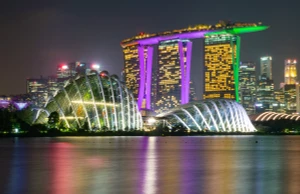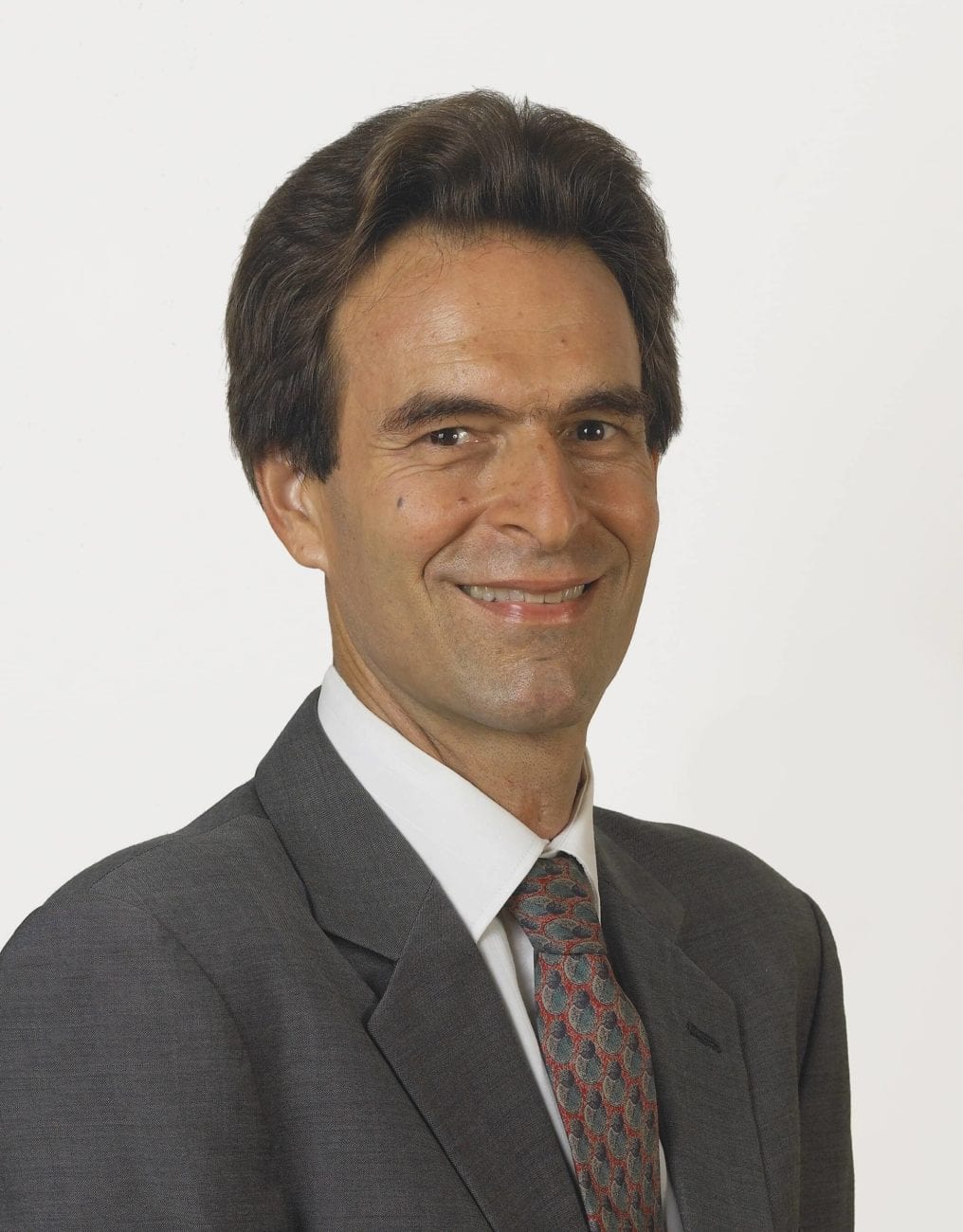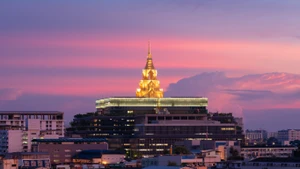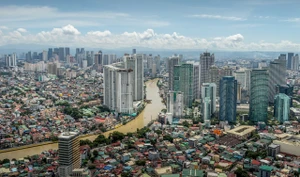Amid the sound and fury of Thailand’s casino legalisation, with politicians declaiming and developers proposing at breakneck speed, a significant point in the draft gaming law goes largely unnoticed.
This key choice in the proposed legislation reveals much about Thai authorities’ vision for integrated resorts and likely outcomes of the process.
Regulatory detail may seem arcane, but the Thai gaming market is “a once in a generation opportunity,” Spectrum Gaming CEO Fredric Gushin says. JP Morgan estimates integrated resort revenue in Bangkok alone could reach US$5bn.
The draft gaming law released in August specifies that a Policy Committee will steer the effort to establish “integrated entertainment venues”.
This Policy Committee will consist of the prime minister, deputy prime minister, six of their cabinet members, the heads of the police, anti-money laundering office and investment board, plus six members appointed by the prime minister.
Policy Committee duties predictably include setting policy for the integrated entertainment complexes in terms of number, locations, impacts, licensing criteria, casino space proportion of total floor and entry fees for Thai nationals, as well as recommending tax rates. Its remit extends to the regulatory apparatus and aspects IR operations.
The Policy Committee’s composition featuring sitting politicians rather than solely their appointees appears unprecedented globally.
Not ‘too political’ for now
Some gaming industry figures see the Policy Committee’s political skew as nothing extraordinary. “Given that the government is comprised of multiple political parties, the structure of the [Policy] Committee also builds support for the Entertainment Complexes,” Spectrum’s Gushin says.
“The membership of the [Policy] Committee are all of the ministers from departments that will be involved in the Entertainment Centers, some more than others.” He likens the group to “a high profile legislative committee that oversees gaming policy, as is the case in many jurisdictions.”
As for whether the arrangement is “too political,” Gushin, with 13 years of service in the New Jersey Division of Gaming Enforcement overseeing casinos in Atlantic City, says, “In my opinion, it is becoming clear that worldwide political oversight of regulators has become intertwined with regulation over the last 20 years. The arrangement outlined in the draft law seems to be adequate.”
At their behest
“I do not see much distinction between a regulator being appointed by a political leader as opposed to one being a political leader,” Klebanow Consulting principal Andrew Klebanow says. “In the United States, state governors appoint people to serve as gaming regulators. In other countries, they may be appointed by the prime minister. Those regulators have a duty to hold the industry accountable, but they also serve at the behest of the person who appointed them.”
The Agenda Group director for regulatory affairs Peter Cohen acknowledges that politicians choosing senior regulators potentially injects politics into regulation. “As part of that appointment process, there might be some implied or even explicit instructions as to what the politicians might expect with respect to specific future decisions.”
However, Cohen who headed gaming regulation in Australia’s Victoria State 2002 through 2010, tells iGB: “While I can confirm that I never received any instructions at any time from a politician (or a politician’s office) to make a specific decision, I’m not able to confirm that it was the same for my peers, although I expect most in top tier jurisdictions were treated in a similar manner.
“To go one step further, in Westminster-style jurisdictions, such as UK, Australia and New Zealand, appointments of these senior positions are generally apolitical with appointees remaining in positions even after a change of government.” Often, those appointees have relevant expertise, giving them professional or personal commitments to ensure regulation meets relevant standards.
Spreading risk
“Considering that gaming is a socially transformative industry for new entrants, one would reckon sitting governments to exercise risk-aversion, and setting up a diverse mix of stakeholders and interest groups as members in oversight bodies should be a reasonable strategy,” Professor Leonardo (Don) Dioko, director of the International Center for Tourism and Hospitality Research at Macao University of Tourism says.
“It has great practical value, as well. For one, it cloaks [gaming in] greater legitimacy, and for another, I reckon it to be an efficient platform for evaluating policies, debating, and compromising potentially conflicting views.”
Dioko adds, “One would not wish regulations to change whenever the political winds also change.”
“I would not recommend politicians be involved in the actual operation of a regulatory body,” Nevada Gaming Control Board chairman 2012-17 A.G. Burnett says.
“Politicians can create the governing legislation or charter for such a regulatory body, but it is important to establish independence of members who ideally have regulatory experience and to allow the regulators to make decisions outside of politics. The regulators should be able to operate without political pressures being placed upon them and to do so under a well-defined regulatory regime.”
Seeking stability amid change
“Operators and suppliers like stable regulatory environments and political climates that stay out of the fray of the regulatory process,” B Global managing partner Brendan Bussmann says. “When you are making major capital investments, developers cannot afford to have changes that can be at the whim of political change.”
For better or worse, political change is a fact of life in Thailand. A week after his government released the draft gaming law proposal, Prime Minister Srettha Thavsin was ousted by the Constitutional Court for an improper personnel appointment. Srettha served just under one year.
The ruling coalition replaced Srettha with Paetongtarn Shinawatra, 37 year old daughter of recently pardoned former prime minister Thaksin Shinawatra. Thaksin remains Thailand’s only elected prime minister to complete a full term. During his 2001-2006 tenure, Thailand had its most meaningful previous flirtation with casino legalisation.
Widely seen as the power behind this ruling coalition, Thaksin supports the current entertainment complex initiative. Paetongtarn has made it a cornerstone of her governing program.
Transfers of power
If the proposed regulatory structure had been in place, Srettha’s ouster would have swept away the top layer of the gaming regulatory bureaucracy. Of course the same thing happens, albeit on a schedule, in US states when their governments change.
“There is no one size fits all, and the structure and nature of the gaming regulator typically follows the administrative traditions and processes of each jurisdiction,” professor of gaming law and criminal law in Macau and Portugal Jorge Godinho says. “Regardless of the regulatory forms and structures adopted, the most important matter is to have good regulation, stability, predictability and a good control of financials and of suitability of all parties involved.”
It’s unclear that Thailand’s proposed regulatory structure with politicians at the top will meet that standard.
One of a kind
Creating a regulatory structure found no where else in the world suggests Thai authorities are not engaging internationally.
“It is absolutely crucial for any new regulatory agency to study and observe the regulatory structures in place in other mature regulatory jurisdictions and to meet with multiple regulatory bodies to not only get a glimpse of ‘best regulatory practices’ and also to establish new diplomatic relationships, all of which are extremely crucial to the new regulator’s success,” Burnett, now a partner at Nevada law firm McDonald Carano, says.
Empty slogans

Thailand’s lack of international engagement reduces its talk of “Singapore style” integrated resorts to an empty slogan. National University of Singapore associate professor Lee Kah Wee literally wrote the book on the development of Marina Bay Sands, Las Vegas in Singapore.
In his book, Lee recounts how pressure from Singapore authorities ensured construction of the SkyPark, featuring the resort’s signature rooftop infinity pool. This came despite the reluctance of Las Vegas Sands founder Sheldon Adelson to build the massive structure as proposed.
“This story is part of a larger story of how governments bend casino concessionaires to do what they otherwise would not do – whether it is to ‘diversify,’ or to target overseas rather than local gamblers, or to contribute to social welfare, et cetera,” Lee says. “From the perspective of the casino concessionaires, how well and willingly they fulfill these objectives depend on a host of factors – the contractual terms and conditions, the bargaining power of each party involved, the profitability of the market over the tenure of the licence, and their own development strategies.”
Local press reports indicate that Thailand is inclined toward bending policy to suit developers. It is floating ideas such as reducing IR investment requirements, increasing gaming floor sizes and moving from zero IRs in Bangkok to as many as three.
Meeting the gold standard
Another key issue is whether Thailand’s regulatory regime will be deemed suitable for licensees in fastidious jurisdictions, most notably Singapore and Nevada, big names including Sands, Wynn, MGM, Genting, Hard Rock, Mohegan Gaming and Caesars, what Bussmann calls “the best o the best.”
“If you do not have a robust regulatory structure that has strong KYC/AML [know your customer/anti-money laundering] and anti-corruption measures, it is going to be very difficult for any operator that conducts business today in Nevada or Singapore to be able to go into a market with lesser standards, the Philippines being case in point.”
Asia’s most dynamic market
Indeed, the Philippines does not have any US licensees among its casino operators. Genting, licensed in Singapore, Nevada and the UK, was a partner in the Philippines’ first IR, Resorts World Manila, but has since exited the market.
From the perspective of Thai authorities and the kingdom’s major developers, the Philippines may not serve as a cautionary tale but an attractive template.
The Philippines is the most dynamic gaming market in Asia these days as Macau finds its footing amid the end of VIP junkets, China’s crackdown on illegal money transfers and the focus on mass market tourists. Last year, the Philippines reached US$5 billion in gaming revenue for the first time. This year, the archipelago is on track to top $6 billion, threatening Singapore’s hold on the second spot in Asia behind Macau.
Thailand’s leading developers, adept at creating huge, compelling multi-use complexes, have shown enthusiasm for casino resorts, unlike their Japanese counterparts. They’ll see a lot to like in the Philippine model.
This is our house
Government owned corporation Pagcor regulates Philippine casinos as well as operating gaming under the Casino Filipino brand. There’s no entry tax for Philippine nationals to enter casinos.
Pagcor top leadership changes with the new presidency every six years. Longtime construction executive turned current Pagcor chairman Alejandro Tengco has declared Pagcor “a partner” to the gaming industry. Pagcor’s main goal is “nation building,” defined as delivering revenue to the government from license fees and gaming levies.
“And that’s where the problems start,” Andrew Klebanow warns, speaking generally. “Sometimes, regulators will create policies or overlook certain transgressions in order that the industry maintains a steady and growing contribution to tax revenue.” He believes regulators ideally balance maintaining the integrity of the industry while enabling it to “flourish”.
With a handful of exceptions, Philippine casino licences are held by Philippine entities. Billionaires Enrique Razon Jr, Andrew Tan and the Sy family, reputed to be the archipelago’s richest, control three of the four IRs in Entertainment City overlooking Manila Bay. Each launched with foreign partners providing gaming management expertise, though only Macau’s Melco remains as the operator of Sy owned City of Dreams Manila.
Moving on up
Razon’s Solaire and Tan’s Newport Resorts World – the rebranded Resorts World Manila – began with relatively modest investments, well below the US$3bn that’s been suggested as a minimum for Thailand. Each has expanded, moving upmarket as they’ve grown.
Both Razon’s Bloomberry and Tan’s MegaWorld have opened second properties. Solaire North in Quezon City debuted in May. Westside City, a 31 hectare “township” with residential, retail and recreation has launched its early phases. A casino hotel operated by LET, a key partner in Vietnam beachfront IR Hoiana, is due to open next year.
Each IR owner, plus LET’s SunTrust, the name remnant of its roots as the non-junket arm of Macau’s infamous Suncity Group, is listed on the Manila stock exchange.
To Thai developers and authorities, the Philippine model must seem far more compelling than having a Las Vegas or Singapore operator parachute in, impose foreign rules demanding reams of paperwork and prying investigations in order to big foot them out of the way.

Muhammad Cohen is a former US diplomat and current iGB Asia editor at large. He has covered the casino business in Asia since 2006, most recently for Forbes, and wrote Hong Kong On Air, a novel set during the 1997 handover about TV news, love, betrayal, high finance and cheap lingerie.
Original article: https://igamingbusiness.com/casino/land-based-casino-regulation/thailand-blazes-new-regulatory-trail/















